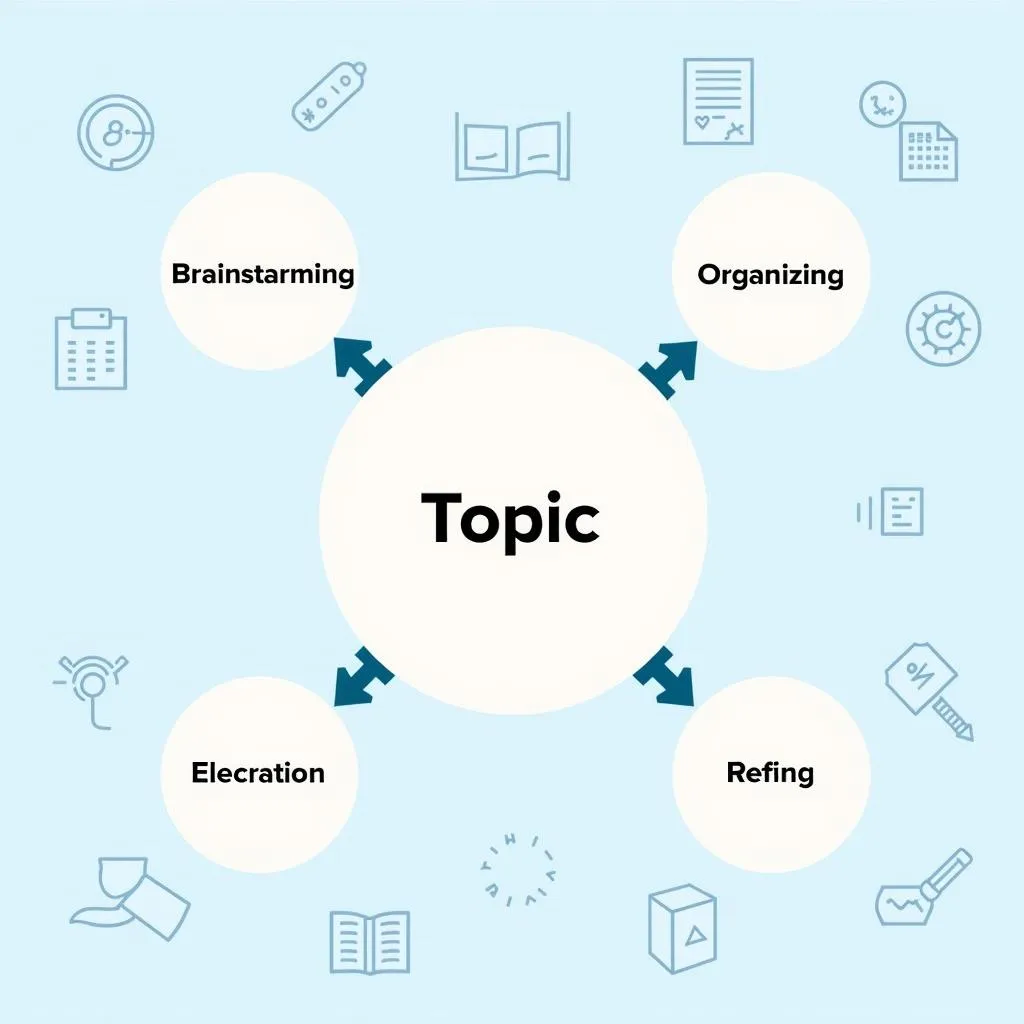Understanding the Importance of Idea Development
Developing ideas for IELTS Writing Task 2 is a crucial skill that can significantly impact your overall score. This task requires you to write an essay in response to a given prompt, and your ability to generate relevant, well-structured ideas is essential for success. By mastering the art of idea development, you can ensure that your essays are coherent, persuasive, and meet the task requirements.
Key Benefits of Effective Idea Development
- Improved essay structure
- Enhanced coherence and cohesion
- Stronger arguments and examples
- Better time management during the exam
- Higher band scores in Task Achievement and Coherence and Cohesion

Effective Techniques for Generating Ideas
1. Mind Mapping
Mind mapping is a powerful visual technique that can help you generate and organize ideas quickly. Start by writing the main topic in the center of a blank page, then branch out with related subtopics and supporting ideas. This method allows you to see connections between different concepts and helps in creating a logical structure for your essay.
2. The 5W1H Method
Utilize the 5W1H method (Who, What, When, Where, Why, and How) to explore different aspects of the topic. This approach ensures that you consider various perspectives and gather comprehensive information for your essay.
Example:
Topic: The impact of technology on education
- Who: Students, teachers, parents, educational institutions
- What: Online learning platforms, digital textbooks, interactive software
- When: Present day and future implications
- Where: Classrooms, homes, global learning environments
- Why: To improve access to education, enhance learning experiences
- How: Implementation of technology in curriculum, teacher training, infrastructure development
3. Pros and Cons Analysis
For opinion-based essays, creating a list of pros and cons can help you develop a balanced argument. This technique allows you to consider multiple viewpoints and choose the strongest points to support your position.
4. Personal Experiences and Observations
Drawing from personal experiences and observations can provide unique and authentic examples to support your ideas. However, ensure that these examples are relevant to the topic and can be generalized to a broader context.
Organizing and Structuring Your Ideas
Once you have generated a pool of ideas, the next step is to organize and structure them effectively for your essay.
1. Identify Main Points
Review your ideas and select 2-3 main points that directly address the essay prompt. These will form the basis of your body paragraphs.
2. Develop Supporting Details
For each main point, identify specific examples, statistics, or explanations that provide evidence and elaboration. This will help you create well-developed paragraphs with strong supporting details.
3. Create a Logical Flow
Arrange your ideas in a logical sequence that allows for a smooth transition between paragraphs. Consider using transitional phrases to connect your ideas and enhance the overall coherence of your essay.
Elaborating on Your Ideas
To achieve a high band score in IELTS Writing Task 2, it’s essential to fully develop your ideas with relevant details and examples.
1. Use the PEEL Paragraph Structure
Implement the PEEL (Point, Explanation, Example, Link) structure in your body paragraphs to ensure thorough idea development:
- Point: State your main idea
- Explanation: Clarify and elaborate on the point
- Example: Provide a specific, relevant example
- Link: Connect back to the main argument or transition to the next point
2. Incorporate Relevant Evidence
Support your ideas with factual information, statistics, or expert opinions when appropriate. This adds credibility to your arguments and demonstrates your knowledge of the topic.
3. Consider Counter-Arguments
Acknowledging and addressing potential counter-arguments shows critical thinking and adds depth to your essay. This approach also helps in creating a more balanced and persuasive argument.
Common Pitfalls to Avoid
When developing ideas for IELTS Writing Task 2, be aware of these common mistakes:
- Straying off-topic: Ensure all your ideas are directly relevant to the essay prompt.
- Lack of specificity: Avoid vague statements and provide concrete examples to support your points.
- Repetition: While it’s important to reinforce your main ideas, avoid repeating the same points without adding new information.
- Imbalanced arguments: In opinion essays, consider both sides of the argument, even if you strongly agree with one perspective.
- Insufficient explanation: Don’t assume the reader understands your point; always provide clear explanations and examples.
Practice and Refinement
Developing ideas for IELTS Writing Task 2 is a skill that improves with practice. Here are some strategies to enhance your ability:
- Regularly practice brainstorming ideas on various IELTS topics.
- Time yourself during idea generation to simulate exam conditions.
- Seek feedback from teachers or study partners on the relevance and depth of your ideas.
- Analyze sample high-scoring essays to understand effective idea development techniques.
- Keep up with current events and global issues to expand your knowledge base.
By consistently applying these techniques and avoiding common pitfalls, you can significantly improve your ability to develop strong, relevant ideas for IELTS Writing Task 2. Remember, the key to success lies in practice, reflection, and continuous improvement of your idea generation and essay writing skills.